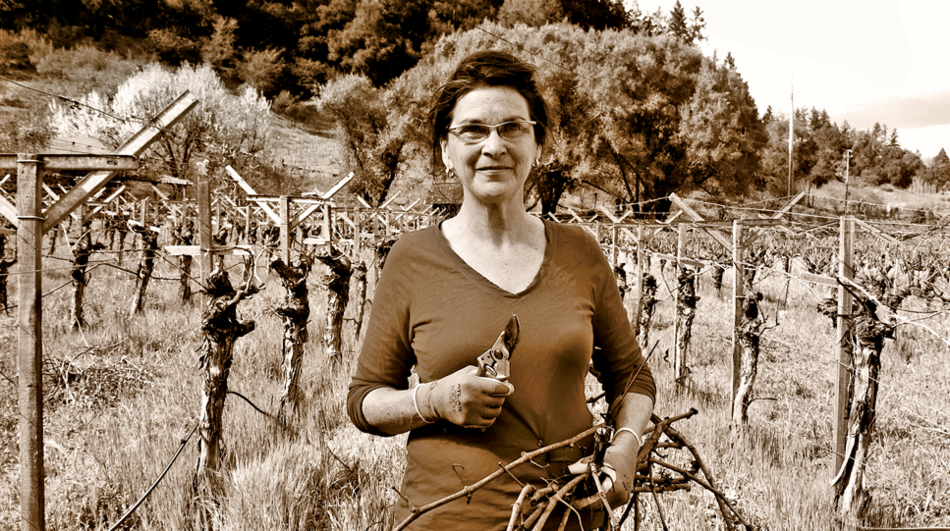Going from nursing to winemaking is a big pivot. How did you make the switch?
I was introduced to wine in the Finger Lakes region of upstate New York by a young vintner. I was in nursing school then, and we started dating. After I graduated from Columbia, we moved to California, got married, and opened a winery together called Frog’s Leap. Before we knew it, our business was growing, and I quit my job and pursued the wine business full-time. Eighteen years later, I launched Tres Sabores.
Talk about Tres Sabores’ approach to winemaking.
“Tres Sabores” is Spanish for “three flavors.” For me, there are three elements that impact how a wine tastes: the variety of the grapes, the quality of the terroir (or earth) where the grapes are grown, and the spirit of the table — the ambiance, the food, the social setting. We have a vineyard of about twelve acres with hundreds of olive, pomegranate, and lemon trees, and everything is certified organic. When you foster natural systems, you get healthy soil that leads to balanced vines and fruit, and balanced fruit leads to really good wine.
What’s the most difficult part of being a winemaker?
Making the wine is the easier part. We’re fortunate to have the right climate and vines, as well as the necessary equipment and experience. The harder step is actually selling the wine — navigating a huge network of distributors and restaurants that have little time for a small, artisanal producer.
Are women underrepresented in the winemaking world?
Yes, although it’s getting better. At universities that have viticulture and enology programs, the parity between genders is strong. But of winemakers who own their own companies, maybe 10 to 12 percent are women.
You’re the cofounder of Women for WineSense, a national organization that promotes wine education and appreciation. Why are those things important?
Well, wine is used for business and entertaining, so it can be useful to have expertise. But wine is also one of the great pleasures in life — and the more you know, the more enjoyable it can be. There’s also substantial evidence that enjoyment of wine in moderation can be a health benefit.
What advice would you give to an amateur sommelier?
Take classes: there are numerous schools and certifications out there. Start your own wine-tasting group, meet regularly, and, if you’re traveling, visit local vineyards and learn about the differences in regional wines.
There seem to be a lot of oenophiles in the Columbia community. Any explanation for that?
I think some of it has to do with the fact that we’ve all spent time in New York City, with its spectacular food and possibly the world’s most diverse wine market. It seems only natural that New York would inspire people to dip their toes into the wine world.
If you could drink only one type of wine for the rest of your life, what would it be?
If I were forced to shut myself up in my cellar, I would be drinking Zinfandel or Cabernet Sauvignon from the barrel. When Armageddon comes, you’ll know where I’ll be, and I’ll be perfectly happy.



